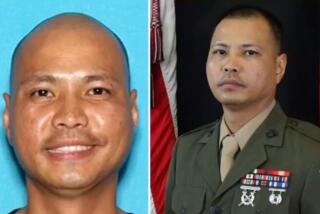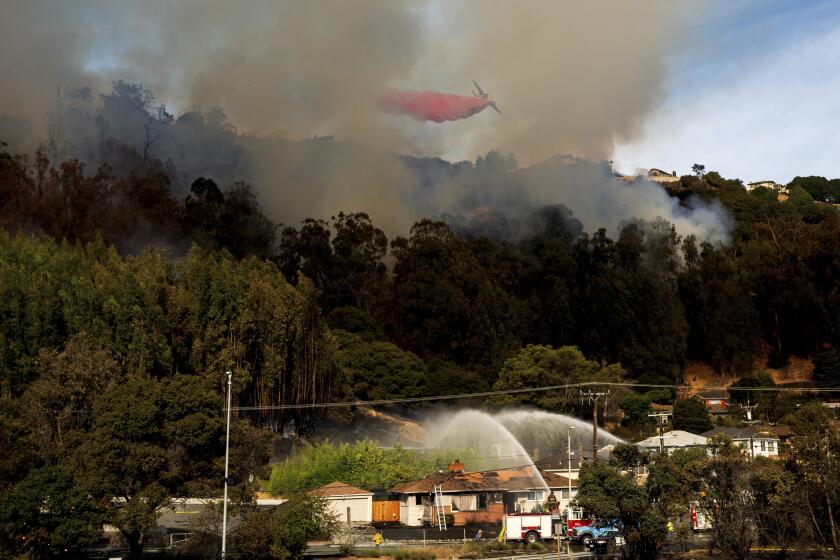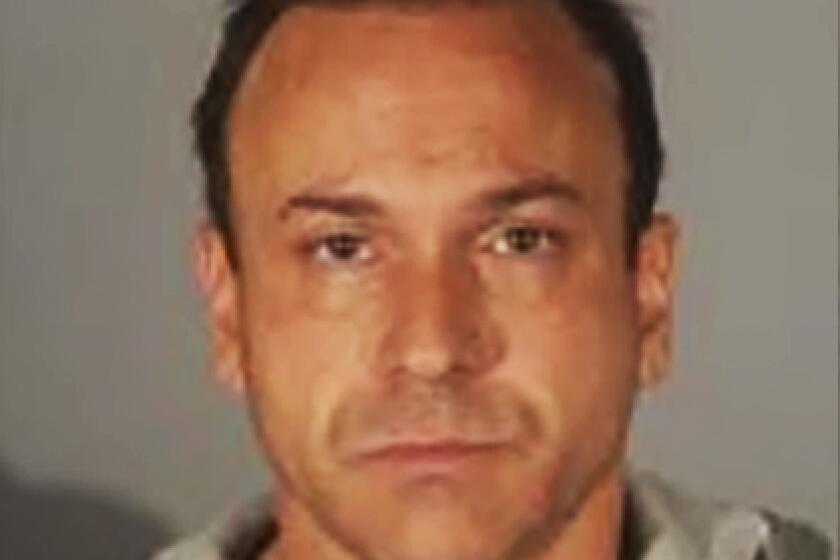Lawmakers urge Medal of Honor for San Diego Marine
A bipartisan group of California legislators has asked the secretary of the Navy to reconsider a request from the Marine Corps that the Medal of Honor be awarded posthumously to a Marine from San Diego killed in Iraq.
The group says newly discovered video and a report from a noted pathologist merit a review of the decision by then-Defense Secretary Robert Gates not to recommend that the Medal of Honor be awarded to Sgt. Rafael Peralta.
Peralta, 25, an immigrant from Mexico, was killed in November 2004 while Marines were clearing insurgents from barricaded homes in Fallouja.
Marines who were with Peralta said that as he lay dying from a gunshot wound to the head, he reached out and pulled an enemy grenade beneath his body to shield his fellow Marines, saving their lives.
Based on eyewitness accounts, the Marine Corps nominated Peralta for the Medal of Honor.
Two neurosurgeons concluded that Peralta, while dying, was still able to pull the grenade under his body. But a pathologist who performed the autopsy disagreed, saying that Peralta was already clinically dead and that wounds on his upper body were inconsistent with his having smothered a grenade explosion.
In the face of contradictory conclusions, Gates rejected the Medal of Honor nomination for Peralta but approved the Navy Cross. Gates’ action angered many Marines and members of the Peralta family.
Now the San Diego congressional delegation and both U.S. senators from California have asked Navy Secretary Ray Mabus to reconsider the nomination for forwarding to Defense Secretary Leon Panetta.
The group cites video recently released by the History channel that shows Peralta’s body being removed from the house. The video, taken by a filmmaker who was following Marines during the battle, does not show the kind of leg wounds that would likely be present if the grenade had exploded near Peralta’s leg, as the pathologist concluded, instead of underneath his body, as the Marines insisted.
Also being submitted is a review of the autopsy and other clinical evidence done by Dr. Vincent Di Maio, a forensic pathologist from San Antonio. He backs the conclusion of the neurosurgeons from the Naval Medical Center San Diego that Peralta was not immediately incapacitated by the head wound.
“Sgt. Peralta’s actions and sacrifice are within the standard and tradition of the Medal of Honor,” said Rep. Duncan Hunter (R-Alpine), a Marine veteran who served in Iraq and Afghanistan. “It’s my hope that the secretary of the Navy will do what’s right.”
More to Read
Sign up for Essential California
The most important California stories and recommendations in your inbox every morning.
You may occasionally receive promotional content from the Los Angeles Times.










